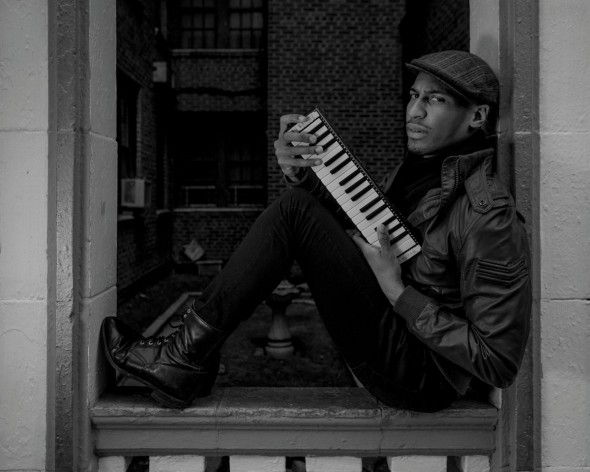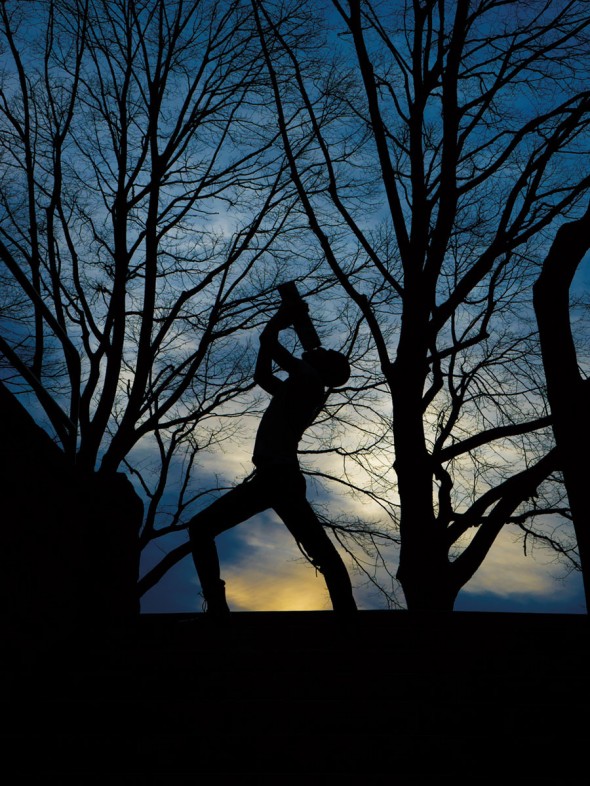
Jon Batiste is a unique individual. Hailing from a celebrated musical family in New Orleans, music runs in his veins. Not just in his blood, but also in his gait, the lilt of his speech and his whole being.
He is a singer, virtuoso pianist, composer and bandleader, a Juilliard graduate, “Movado Future Legend” award recipient, and a “Steinway Performing Artist.” By 25 Batiste had already performed in over 40 countries with the likes of Roy Hargrove, Wynton Marsalis, Cassandra Wilson, Prince, Lenny Kravitz and Jimmy Buffett among others. He was appointed Artistic Director at the National Jazz Museum in Harlem, and sold out venues all over New York including Dizzy’s Club at Jazz at Lincoln Center, The Bowery Ballroom and Carnegie Hall. But those are just the facts of his accomplishments. To get a real sense of Batiste is to witness the groundbreaking and fresh movement that is “social music.” Now at 27 years old, he is making a name for himself as one of the most innovative and exciting musicians on the scene today.
Jon is fresh from his homecoming show at Webster Hall in New York, where he played with his Juilliard-formed band, Stay Human to a full house of 1,400. Just when the lights blared brightly on the final number, Jon lead his band down off of the stage into the audience below. Harmonabord (a portable, mouth-blown keyboard) in hand, he played shoulder to shoulder with his fans and lead hundreds of them out onto the streets for a “love riot.” The musical procession stopped only to embrace new friends, playing for any passersby. This was the “social music” experience.
In this way, Jon and his band often made the more unexpected spots their regular venues, giving spontaneous performances for New Yorkers on street corners, in subway cars, and in eateries such as Katz’ Deli in the Lower East Side. Bringing jazz directly to people, and interacting both with them in these instances he reflects that,
“Jazz is always about the moment, and embracing what’s happening right now—it has a celebratory tradition,” says Batiste. “We need to take it outside the context of the concert hall and
take it to the street without watering it down.”
Batiste goes on to say, “Everyone from babies to people who are 80, people who like that older music back to King Oliver, then people who like Kanye West and Drake. They’re all at our con- cert, and that’s what social music is about.”
Similarly, the mélange of musical influences from funk, to jazz, to spirituals, to R&B can be heard in his music, and the different artistic collaborations are just as colorful and eclectic. Lenny Kravitz and Chad Smith of the Red Hot Chilli Peppers both sat in on one of his community outreach performances for the National Jazz Museum in Harlem.
Batiste’s most recent album titled “Social Music” reflects his beliefs that art should be inclusive, a way to connect us to one another, and allow for a collaborative spirit. “Music is the soundtrack to social change,” he says. “The album is my response to what’s happening in the world right now. It’s based in traditional jazz but it’s played with a spirit of inclusiveness.”
“We just want the crowd to explore with us, because there’s room for everybody in the ‘social music’ concept. That’s why I feel when people come to the show, it’s almost mandatory that they are involved.”
Batiste’s talent is almost eclipsed by the unique nature of his social music movement, which makes for the most unforgettable live musical experience that reminds us to stay human.

Text by Aine Campbell Photography by Mike Kobal